Dr. Kolevzon is child and adolescent psychiatrist and Professor of Psychiatry and Pediatrics at Icahn School of Medicine at Mount Sinai. He has been the Clinical Director of the Seaver Autism Center since 2007 and the Director of Child and Adolescent Psychiatry for the Mount Sinai Health System since 2014. His clinical expertise revolves around autism and related neurodevelopmental disorders and his research is focused on developing biomarkers, novel outcome measures, and disease-modifying pharmacological interventions. Most recently, his group has focused on studying monogenic forms of autism, including Phelan-McDermid syndrome, in order to better understand the phenotype, explore possible targets for pharmacological intervention, and validate new outcome measures for use in clinical trials. He has participated in many multi-centered clinical trials, including IGF-1 in PMS and is currently the principal investigator on the PMS project for the Rare Disease Clinical Research Network entitled Developmental Synaptopathies Associated with TSC, PTEN and SHANK3 Mutations.
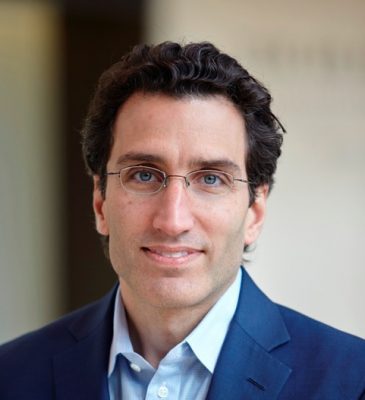
Dr. van Balkom is a child and adolescent psychiatrist, Head of Research and Director of Jonx, Department of (Youth) Mental Health and Autism of Lentis Psychiatric Institute. She is also senior researcher at Rob Giel Research Centre, Department of Psychiatry of the University Medical Centre Groningen (UMCG). Her research and clinical work focuses on behavior and different developmental domains in complex neurodevelopmental disorders. She has contributed to international Guidelines for Cornelia de Lange and Pitt-Hopkins syndrome, and is a member of a European consortium working on guidelines for Phelan-McDermid syndrome. The Autism Team Northern-Netherlands (ATN) of Jonx closely collaborates with the Center of Expertise for Phelan-McDermid syndrome of the UMCG, headed by prof. van Ravenswaaij-Arts, who also holds a part-time position at ATN. Dr. van Balkom currently supervises a PhD student who studies the natural history of development and behavior in Phelan-McDermid syndrome using longitudinally collected data.

Dr. Berry-Kravis is a Pediatric Neurologist and Professor of Pediatrics, Neurological Sciences, and Biochemistry at Rush University Medical Center in Chicago. She established the comprehensive Fragile X Clinic and Research Program in 1991, through which she provides care to over 600 patients with fragile X syndrome (FXS). Her research has included studies of medical issues, epilepsy and psychopharmacology in FXS, characterization of neurological problems in FXTAS, and in particular translational work in FXS including outcome measures and biomarkers, natural history, newborn screening, and design and implementation of clinical trials of new targeted treatments in FXS. Her laboratory studies the cellular role of fragile X mental retardation protein (FMRP), relationship between FMRP and clinical function, and methods for optimizing genetic testing in fragile X-associated disorders. More recently she has expanded clinical management and translational work to other developmental and degenerative disorders including Phelan McDermid syndrome. She is on advisory boards for National Fragile X Foundation and numerous pharmaceutical companies working in the neurodevelopmental and neurodegenerative disorders space. She is Chair of the Clinical Committee of the Fragile X Clinical and Research Consortium. She has received numerous awards and honors including the Jarrett Cole Award for clinical work in FXS in 2002, the Hagerman Award for excellence in FXTAS research in 2004, the FRAXA Champion Award in 2011, an Autism Speaks Top Ten Research Accomplishment for 2012, the Ups for Downs Commitment to Excellence Award in 2012, the NFXF William and Enid Rosen Research Award in 2014, the March of Dimes Jonas Salk Research Award in 2015, the American Academy of Neurology Sidney Carter Award in Child Neurology in 2016 and the John Merck Fund Sparkplug Award in 2016.

Dr. Clawson is an Assistant Clinical Professor of Psychiatry at both Georgetown University Department of Psychiatry and George Washington University School of Medicine. He also serves as an Adjunct Assistant Clinical Professor of Psychiatry at the Uniformed Services University of the Health Sciences; and teaches at the Child & Adolescent Psychiatry Fellowships at both Georgetown University and the Walter Reed National Military Medical Center. Dr. Clawson received his medical degree with honors from Tufts University School of Medicine, and undergraduate degree at the University of Southern California. He completed his Psychiatry Residency and Child & Adolescent Psychiatry Fellowship at the Walter Reed Army Medical Center, where he received awards from the American Academy of Child and Adolescent Psychiatry and the American Psychiatric Association for his leadership and innovative program in treating homeless children. Dr.Clawson eventually became Director of Psychiatry Residency Training at Walter Reed, and after leaving the Army, the Medical Director for the Division of Child & Adolescent Psychiatry at the University of Maryland School of Medicine. He is board certified in Psychiatry and has a subspecialty Board Certification in Child & Adolescent Psychiatry. After starting his private practice, in addition to his clinical work, Dr. Clawson has served on the DC Commission on Mental Health, and participated in industry sponsored drug development research. Recognized by his peers as a Washingtonian “Top Doctor,” for over a decade, Dr. Clawson has lectured extensively in the Washington DC metro area to psychiatrists, mental health professionals, teachers, and parents about: ADHD, Anxiety Disorders, Autism Spectrum Disorders, Childhood Depression, Bipolar Disorder, Pediatric Psychopharmacology, the impact of developmentally disabled children on families, as well as Motivation and Resiliency. Dr. Clawson’s book chapters on School Consultation and ADHD are used in many training programs, and he remains activity involved in the education of the next generation of psychiatrists.

Dr Ghaziuddin is a professor of psychiatry in the Child and Adolescent Section, Department of Psychiatry, University of Michigan, Ann Arbor. She is the Director of the Treatment Resistant Disorder Clinic which provides treatment to youth with a range of severe disorders which are unresponsive to conventional treatment. Some of her key contributions include the writing of American Academy of Child and Adolescent psychiatry guidelines for the use of Electroconvulsive Therapy (ECT) in youth and a book dedicated to various aspects of ECT in minors. Her clinical and scholarly focus include identifying severe treatment resistant disorders during childhood, catatonia, early presentation of bipolar disorder and the use of Electroconvulsive therapy (ECT).

Dr. Gorman completed pediatric neurology residency at Boston Children's Hospital and a multiple sclerosis/ neuro-immunology fellowship at Boston Children's, Massachusetts General and Brigham and Women's Hospitals. He founded the Multiple Sclerosis and Neuro-immunology Program at Boston Children's Hospital in 2008. He leads a multidisciplinary team in the care of children with neuro-immunological conditions including autoimmune encephalitis and clinical research in autoimmune encephalitis.
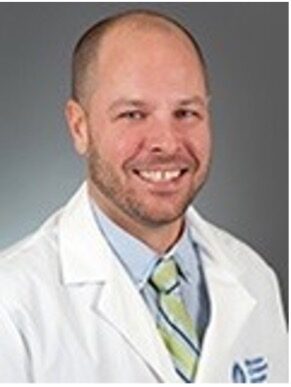
Dr. Gropman is professor (tenured) of Neurology and Pediatrics at the George Washington Medical School and Health Sciences Center. She is Chief of the Division of Neurogenetics and Neurodevelopmental disabilities at the Children’s National Medical Center in Washington, D.C. as well as a special expert/consultant in the Medical Genetics Branch at the National Human Genome Research Center at the National Institutes of Health, Bethesda, M.D. She is the P.I. of the Urea Cycle Rare Disease Consortium. She received a B.A. in biology and biochemistryfrom Brandeis University, and an M.D. from the University of Massachusetts Medical School where she received a Hewlett Packard Top Scholar Award. She subsequently trained in pediatrics at the Johns Hopkins Hospital in Baltimore, M.D., Neurology/Child Neurology at George Washington University and the Children’s National Medical Center in Washington, D.C., and Genetics and biochemical genetics at the National Institutes of Health. She is board certified in pediatrics, neurology with special competence in child neurology, developmental disabilities, genetics and biochemical genetics. She divides her time between clinical activities in neurology and genetics at both Children’s hospital and the NIH and research where her main interests are urea cycle disorders, mitochondrial disorders and chromosome conditions such as Smith Magenis syndrome and 49, XXXXY. Dr. Gropman serves on a number of scientific advisory committees and review groups both at the institutional, governmental, as well as national level. Her research focuses on neuroimaging in the urea cycle disorders and other inborn errors of metabolism that affect brain function as she hopes to use the information from this research to identify early markers of neurological damage from metabolic conditions and help test new therapies.

Dr. Hauptman is a pediatric and adult neuropsychiatrist. He is the Associate Director of Neuropsychiatry at the Kennedy Krieger Institute and an Assistant Professor of Psychiatry at Johns Hopkins School of Medicine. He works with children and their families struggling with neurobehavioral sequelae due to a broad range of developmental and acquired central nervous system disorders, such as cerebral palsy, neuro-genetic syndromes, pediatric neurodegenerative disorders, acquired brain injuries and other conditions. He is also dedicated to training the next generation of clinicians working in this underserved field.
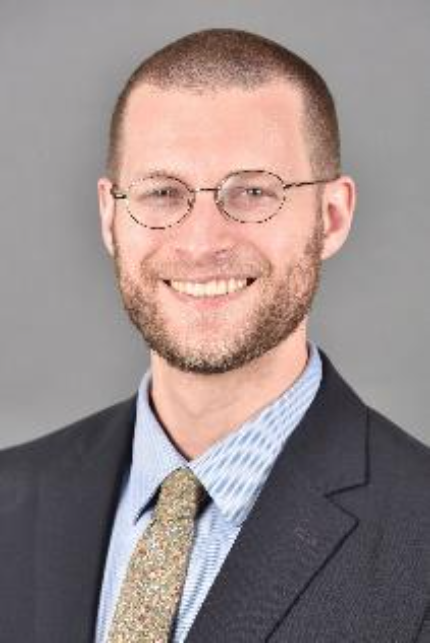
Dr. Holder is an Assistant Professor of Pediatrics in the Division of Neurology and Developmental Neuroscience at Baylor College of Medicine. He received his undergraduate education at The Johns Hopkins University followed by MD and PhD in Human Genetics at the University of Texas Southwestern Medical Center in Dallas, Texas. He then completed his clinical training in Pediatrics and Child Neurology at Baylor College of Medicine. Dr. Holder has established a Synaptopathy clinic at Texas Children’s Hospital to care for children with neurological disorders due to mutations in genes critical for synapse function. In his laboratory, he studies how mutations in these same genes result in molecular, neuronal and circuit abnormalities. He is further investigating genetic modifiers of these genes as potential therapeutic entry points for neurodevelopmental disorders.

Joan Jasien is a pediatric neurologist at Duke specializing inneurodevelopmental disabilities. She completed fellowship training in neurodevelopmental disabilities at Johns Hopkins Hospital and the Kennedy Krieger Institute. Prior to fellowship she completed internal medicine and pediatric residency at Yale. She and Dr. Yong-Hui Jiang are spearheading a clinic for PMS and other monogenic causes of ASD.

Dr. Kohlenberg is a board certified pediatrician. She completed her internship and residency in Pediatrics at Einstein, and then a Fellowship in Developmental/Behavioral Pediatrics at the University of Massachusetts Medical Center. She ran a clinic for teenaged mothers at Boston City Hospital for seven years, and was Principal Investigator on a 5-yr SAMHSA-funded model program for teen mom families affected by substance abuse. These experiences led her to seek formal training in mental health, and she completed a Fellowship in Child and Adolescent Psychiatry at Childrens Hospital of Boston. For the past two decades she has worked in Child and Adolescent Psychiatry, both in private practice focusing on adoptive families, and as adjunct faculty at the University of Massachusetts Medical Center. She holds an appointment as Assistant Professor in Psychiatry at UMass, but her work primarily is in consultation to community service programs and in private practice. Dr. Kohlenberg is also the mother of a teenaged daughter with complex developmental and neuropyschiatric illness, who was recently diagnosed with a SHANK3 mutation. She is active with the PMS Foundation, and is highly motivated to understand what triggers neuropsychiatric episodes and regression in PMS patients, and what interventions might prevent or ameliorate such episodes.

Dr. Mooneyham is a Medical Officer at the National Institutes of Health in Bethesda, Maryland. Dr. Mooneyham completed a triple board residency at Indiana University School of Medicine from 2011-2016 and is board certified in General Pediatrics, Adult Psychiatry, and Child & Adolescent Psychiatry. Dr. Mooneyham’s research focus is on the exploration of organic causes of psychosis and catatonia. In this effort, she provides clinical care for children and adolescents with complex neuropsychiatric symptoms to include patients with Phelan McDermid syndrome. Dr. Mooneyham specializes in autoimmune brain disorders (to include but not limited to Autoimmune Encephalitis, Lupus Cerebritis, Sjogrens, Neuro-Bechet’s, CNS vasculitis, and Neurosarcoidosis). Her work centers on patient advocacy and building consensus in disease models where multi-disciplinary care is required. Before moving to the NIH, she led a multi-disciplinary effort to create a pathway for adolescent electroconvulsive therapy as a lifesaving intervention for patients with malignant catatonia in the pediatric intensive care unit at Duke University. In the Office of the Clinical Director at the NIH, she collaborates closely with the Undiagnosed Disease Program and sees both adult and pediatric patients through the Psychiatry Consultation and Liaison Service within the NIH Clinical Center. Dr. Mooneyham is actively working on the development of a collaborative care initiative focused on facilitating translational research in Pediatric Autoimmune Brain Disorders.

Dr. Neumeyer is a child neurologist, Assistant Professor of Neurology at Harvard Medical School and medical director of the Lurie Center for Autism. She received an AB in chemistry at Dartmouth College and her MD at Dartmouth Medical School. She completed her pediatrics training at Montreal Children’s Hospital and Boston City Hospital and child neurology training at Massachusetts General Hospital, where she still works. She has a passion and expertise in the diagnosis and treatment of children with neurodevelopmental disabilities such as autism, more specifically in medical and neurological issues that present with autism. As a member of the steering committee of the Autism Treatment Network and the HRSA funded Autism Intervention Networks in Physical Health, she has worked to develop better clinical care for children in North America. She has worked with various organizations and industry and conducted clinical trials in children with ASD, both with phenotyping and treatment studies. Her clinical observations have fueled a strong interest in investigations of metabolic and bone development issues in children with autism as well as medical comorbidities in autism and the impact of diet upon medical issues in children with autism. In addition, she works with community and hospital systems to improve care of children and adults with autism and developmental disabilities within the hospital setting.

Dr. Persico is a Professor of Child and Adolescent Neuropsychiatry at the University of Modena & Reggio Emilia (Italy). He earned his Medical Degree in 1986 at the Catholic University of the Sacred Heart (Rome, Italy), where he also completed his residency in Psychiatry in 1990. He worked as a Visiting Foreign Fellow at the National Institute on Drug Abuse (Baltimore, MD) between 1991 and 1994. He then returned to Italy to work on brain plasticity mechanisms and neurodevelopmental disorders, primarily related to ASD. In 2010, he started the clinical Unit of Child and Adolescent Neuropsychiatry at University Campus Bio-Medico in Rome and in 2016, the Interdepartmental Program “Autism 0-90” at the “G. Martino” University Hospital (Messina, Italy), where he activated a Phelan-McDermid Syndrome Clinic. He now directs the Child and Adolescent Neuropsychiatry Program at the Modena University Hospital. His primary research interest is the identification of biomarkers for early diagnosis, developmental trajectory and behavioral treatment response in ASD, as well as the development of novel pharmacological/nutraceutical interventions in ASD and in Phelan-McDermid syndrome. He has published extensively and is a member of the Scientific Committee of the Phelan-McDermid Syndrome Italian Association.

Dr. Raza is a child, adolescent and adult psychiatrist and chief of service in the Psychiatry Consultation Liaison Service (PCLS) in the Office of the Clinical Director in the National Institute of Mental Health Intramural Research Program at the National Institutes of Health. Dr. Raza previously was the Medical Director of the Center for Autism Spectrum Disorders at Children’s National Health System from 2010 to 2018 leading a multidisciplinary team in diagnosis and evaluation of ASD in children and adolescent with complex presentations. She focuses her clinical work on treatment of comorbid psychiatric disorders in children, adolescents and young adults with neurodevelopmental disabilities and comorbid medical conditions, including epilepsy, Prader-Willi Syndrome, velocardiofacial syndrome, neurofibromatosis and congenital cardiac diseases. Her research interests are related to psychiatric disorders presenting in children and adolescents with developmental disabilities and complex medical illness. Dr. Raza completed three years of general psychiatry residency training at Georgetown University, and her 4th year of psychiatry residency at NIMH. She next pursued C-L fellowship training in a joint program with Georgetown University and NIMH, followed by a fellowship in Child and Adolescent Psychiatry at Children’s National Medical Center. Dr. Raza is on the executive council of the Child and Adolescent Psychiatry Society of Greater Washington, serving as Secretary since 2016.
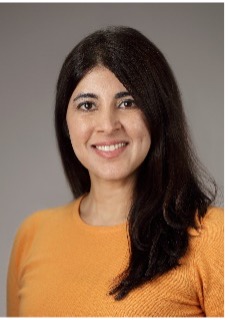
Dr. Srivastava is a pediatric neurologist at Boston Children’s Hospital (BCH) specializing in neurogenetics. His research involves studying different genetic causes of neurodevelopmental presentations — such as autism, intellectual disability, cerebral palsy, and developmental regression — using the multimodal approach of gene discovery, cognitive/behavioral phenotyping, and biomarker identification. This approach not only pinpoints possible mechanisms of disease but also delineates appropriate targets for therapy in future clinical trials aimed at improving neurodevelopmental outcomes in these disorders. At Boston Children’s Hospital, he provides care to children in a variety of neurodevelopmental and neurogenetics clinics. He takes part in the Developmental Neurogenetics Program, which specializes in the diagnosis and management of genetic disorders associated with neurodevelopmental disabilities. Within this program, he sees patients in the Boston Children’s Hospital Phelan-McDermid Syndrome Clinic and PTEN Clinic, whose goals include optimizing long-term neurodevelopmental outcomes and coordinating specialty care across multiple disciplines. He received his B.A. degree in biochemistry from Columbia University and his M.D. degree from Johns Hopkins University School of Medicine. He finished a combined residency in pediatrics and neurodevelopmental disabilities at Johns Hopkins Hospital and the Kennedy Krieger Institute. He completed a fellowship in neurogenetics at Boston Children’s Hospital.

Dr. Thurm is a child clinical psychologist and Director of the Neurodevelopmental and Behavioral Phenotyping Service, and a staff scientist in the Office of the Clinical Director of the Intramural Research Program of the National Institute of Mental Health. Her research is clinical in nature, and focuses on behavioral phenotyping within and between clinical populations, specifically individuals with neurodevelopmental disorders. Her training and expertise includes evaluating and improving upon diagnostic and cognitive assessment instrumentation through longitudinal studies. She has worked extensively with infants, toddlers and children of various ages in clinical studies. She has contributed to novel investigations of cognitive, behavioral and medical aspects of Autism Spectrum Disorder (ASD), as well as to phenotypic explorations of genetic disorders associated with Intellectual Disability and ASD.
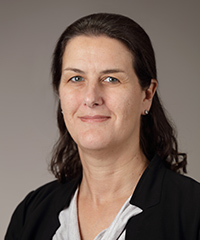
Dr. Trelles is a child and adolescent psychiatrist, and Assistant Professor of Psychiatry at the Icahn School of Medicine at Mount Sinai. Dr. Trelles splits her time between conducting patient-oriented research at the Seaver Autism Center at Mount Sinai Hospital, and providing clinical care for individuals with developmental disabilities at the Developmental Disability Center at Mount Sinai West. Her research is dedicated to improving outcomes for underserved children with autism spectrum disorder (ASD). As part of her work at the Seaver Autism Center, she has been involved in the studies on monogenic forms of ASD, including Phelan McDermid Syndrome, to better characterize their clinical presentation and identify novel treatments.

Dr. Verhoeven was director of residency training and head of the Centre of Excellence for Neuropsychiatry at the Vincent van Gogh Institute for Psychiatry in Venray, The Netherlands. He obtained his Ph.D. degree in 1983 on ‘Endorphins and Schizophrenia’. In the late eighties, he was awarded with the Duphar International Antidepressant Award and the Ramaer Medal of the Dutch Society of Psychiatry. Since 1999 he is appointed as part-time professor in ‘Pharmacotherapy of Chronic Psychiatric Disorders’ at the Department of Psychiatry of the Erasmus University Rotterdam. His main scientific interests are dimensional psychopathology, psychopharmacology, pathophysiology of psychotic disorders and psychopathology in intellectually disabled patients, especially regarding the relationship between genes and behaviour, the so called behavioural phenotypes, and syndrome-related psychopathology with its specific treatment regimen. Over the past decades, he published more than 300 papers in (inter)national journals and gave numerous presentations at congresses and scientific meetings about topics throughout the field of neuropsychiatry and psychopharmacology. On May 1ste 2014 he reached the retirement age and had to stop at the Erasmus University Rotterdam. Since May 1st 2016, aged 67, he also retired from his activities at the Vincent van Gogh Institute for Psychiatry.

Dr. Wachtel is an Associate Professor of Psychiatry at the Johns Hopkins School of Medicine. She received her undergraduate degree in 1993 in Romance Languages and Literature from Princeton University, and her medical degree from the Johns Hopkins University School of Medicine in Baltimore, Maryland in 1998. She completed general, and child and adolescent psychiatry training at the University of Maryland/Sheppard Pratt psychiatry residency training program in Baltimore. She joined the Kennedy Krieger Institute in 2003, where she serves as Medical Director of the Neurobehavioral Unit, specializing in the care of children, adolescents and young adults with autism and intellectual disability who present with concomitant severe psychiatric and behavioral disturbance. Dr. Wachtel’s clinical and research interests focus on pediatric catatonia, particularly in autism spectrum disorder, with emphasis on repetitive self-injurious behaviors and optimal catatonia treatment paradigms including electroconvulsive therapy. Dr. Wachtel is the author of more than two dozen scientific manuscripts and has lectured extensively throughout the United States and abroad.

